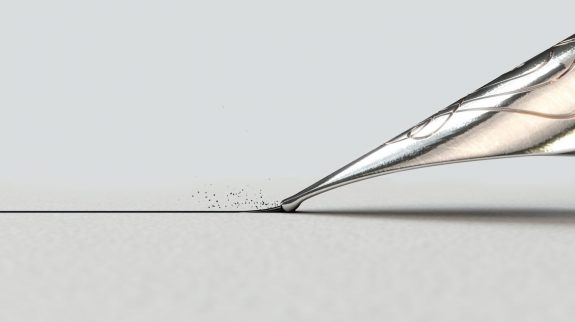The moral principles of independent publishers

The perilous future of the Australian Independent Media Network should be a wake up call to those of us hungry for an alternative to main stream media. But The AIMN’s travail – a funding shortfall – is a phenomenon besetting all media.
Advertisers are abandoning metropolitan daily and regional newspapers and ditching local radio and television, in favour of a slew of multinational online outlets.
So apart from contributing our intellectual endeavours and kicking in a few dollars to keep The AIMN and other outlets afloat, how can independent publishers survive?
It is worth examining the history of a singular aspect of journalism which for years, have kept readers coming back to their favourite medium.
The Walkley Awards is Australia’s equivalent of the U.S. Pulitzer Prize. Both are regarded as the gold standard for journalism and its affiliated efforts. Like it or not advertisers are attracted to media that employ award winners. This is because a coveted Walkley helps the financial bottom line. There is no harm in this as long as editorial and advertising keep their distance within the corporate media enterprise. At least this is how it used to be, but the old order is long gone. As long as revenue streams flow, people are employed, but in times of scarcity such as now, workers join dole queues.
Despite the best efforts of the Media Entertainment and Arts Alliance, thousands of journalists and allied staff are heading for the scrap heap. And yet writers keep writing, and their work, thankfully, picked up by outlets such as the The AIMN.
Most scribes and photographers adhere to a code of ethics, but browse a tabloid – print or digital – and it is obvious those ethics have all but vanished.
So to paraphrase V.I. Lenin, ‘what is to be done?’
I would like to see some kind of loose alliance of independent publishers such as Michael and Carol Taylor, coalescing upon a new, independent award system which extols the output of journalists’ now writing for small, but significant new media outlets.
Dennis Atkins, Michael Pascoe, Paul Bongiorno, Elizabeth Farrelly, John Birmingham Samantha Maiden, and many others – some Walkley Award winners – have for whatever reason, abandoned the Murdoch/ Nine News cesspits.
Along with the AIM there are publishers with increasingly familiar mastheads such as the New Daily, The Guardian, The Conversation, The National Times, Crikey, Independent Australia, The Monthly and so on. Some are big, others small, but all appear committed to the ethos articulated in the MEAA’s Code of Ethics.
Journalists search, disclose, record, question, entertain, comment and remember. They inform citizens and animate democracy. They scrutinise power, but also exercise it, and should be responsible and accountable.
So chip-in to your independent publisher. Organise GoFundMe pages, or crowd fund them. Pay for their services. Read their journalists and organise boycotts of the Usual Suspects. Support the A.B.C. and S.B.S. And tell your local State and Federal Member to be more critical of mainstream media, and to avail themselves of writers and journalists who adhere to a set of moral principles that govern their behaviour as scribes.
When English author Edward Bulwer-Lytton wrote in 1839, “the pen is mightier than the sword,” he meant that communication – particularly written language or advocacy of an independent press – is more effective than violence.
In this day and age I shudder to think of a future without independent publishers and fearless advocates such as The AIM Network.
Henry Johnston is a Sydney-based author. His latest book, The Last Voyage of Aratus is on sale here.
Like what we do at The AIMN?
You’ll like it even more knowing that your donation will help us to keep up the good fight.
Chuck in a few bucks and see just how far it goes!
Your contribution to help with the running costs of this site will be gratefully accepted.
You can donate through PayPal or credit card via the button below, or donate via bank transfer: BSB: 062500; A/c no: 10495969









